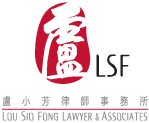Best Private Equity Lawyers in Macao
Share your needs with us, get contacted by law firms.
Free. Takes 2 min.
List of the best lawyers in Macao, Macao
About Private Equity Law in Macao, Macao
Private equity in Macao, Macao involves investment funds, typically structured as limited partnerships or other vehicles, that acquire equity ownership in private companies or assets not listed on public exchanges. As an emerging financial hub in Southern China, Macao has seen growing interest from investors, both domestic and international, looking to tap into opportunities distinct from traditional markets. The legal framework here reflects the unique blend of Portuguese civil law heritage and ongoing integration with international best practices. Engaging in private equity often requires a solid understanding of cross-border investment protocols, local regulatory bodies, and specific corporate structures allowed under Macao law.
Why You May Need a Lawyer
Engaging in private equity transactions in Macao can be complex and exposes parties to significant legal risk. Common situations where you may require legal guidance include forming or investing in funds, negotiating shareholder agreements, structuring buyouts or mergers, meeting regulatory compliance requirements, or resolving disputes over ownership or management. A lawyer can provide critical due diligence, ensure compliant fund structures, assist with licensing, and help navigate Macao's cross-border regulations. Whether you are an investor, entrepreneur, fund manager, or business owner, professional legal support can safeguard your interests and optimize your outcomes.
Local Laws Overview
Macao's private equity environment is governed by several key regulations influenced by its civil law tradition. The Commercial Code serves as the backbone for private company formation, operation, and governance. Foreign investment is generally permitted, but certain sectors may be subject to restrictions or require special approval from regulatory bodies like the Macao Trade and Investment Promotion Institute (IPIM).
Private equity funds in Macao are typically structured according to local company laws. The region does not have a specific private equity or venture capital law, so legal structuring often draws on provisions for limited liability companies, holding entities, and partnership arrangements. Regulatory compliance also often involves anti-money laundering provisions, ensuring proper reporting with the Financial Intelligence Office (GIF). Taxation on profits and capital gains, as well as repatriation of funds, must be carefully considered to avoid legal complications.
Frequently Asked Questions
What is private equity and how does it work in Macao?
Private equity involves investment in private companies or assets, usually by pooling funds from investors. In Macao, this typically means forming or investing in private funds, acquiring businesses, and working to increase their value before selling them for a profit.
Are there restrictions on foreign investment in private equity in Macao?
Generally, Macao welcomes foreign investment. However, specific sectors, such as gaming and real estate, may be subject to regulatory restrictions or require pre-approval from authorities.
How are private equity funds structured in Macao?
Most funds are structured as limited companies, partnerships, or holding companies, in line with the Macao Commercial Code. There is no specialized private equity law, so standard company law provisions apply.
What government authorities oversee private equity in Macao?
The Macao Trade and Investment Promotion Institute (IPIM) plays a significant role, especially for foreign investors. Funds may also need to comply with regulatory requirements from the Financial Intelligence Office (GIF) and the Monetary Authority of Macao.
What are the main legal risks in private equity transactions?
Risks include unclear ownership structures, contract disputes, regulatory non-compliance, cross-border issues, and lack of due diligence. Taxation and repatriation of funds are also important considerations.
Is it necessary to have a local legal entity to invest in Macao private equity?
While not always required, establishing a local presence through a company or partnership is often necessary for compliance and operational reasons, especially for active management of investments.
How can a lawyer help in private equity deals?
A lawyer provides due diligence, drafts and reviews contracts, assists in fund formation and compliance, and helps resolve disputes. Legal advice ensures that investments are protected under local law.
What taxes apply to private equity transactions in Macao?
Macao has a relatively low tax environment, with no capital gains tax for most transactions. However, stamp duty, profits tax, and other levies may apply depending on the nature of the deal.
How do I resolve disputes arising from a private equity investment?
Disputes are usually handled under the terms set out in shareholder agreements or investment contracts. These can be resolved through negotiation, mediation, or litigation before Macao courts.
Are there exit restrictions or requirements when selling an investment?
Exiting an investment may involve regulatory approvals, especially in regulated sectors. The process and any restrictions depend on shareholder agreements and compliance with local laws.
Additional Resources
Various governmental bodies and organizations can assist those involved in private equity in Macao. Key resources include:
- The Macao Trade and Investment Promotion Institute (IPIM): For investment approvals and business registration.
- The Financial Intelligence Office (GIF): For information on anti-money laundering compliance.
- The Monetary Authority of Macao: For financial sector regulations and guidelines.
- Macao Lawyers Association: To find qualified legal professionals specializing in private equity.
- Local business chambers and investment advisory firms: For networking and initial orientation.
Next Steps
If you are seeking legal help with private equity matters in Macao, start by identifying your specific needs, such as fund formation, compliance, or dispute resolution. Compile any relevant documents and facts relating to your situation. Consult with a lawyer who has experience in private equity and who understands both local and international regulations. Arrange a preliminary consultation to discuss your goals, potential risks, and the legal options available. Acting early and obtaining professional advice is the best way to protect your interests and ensure that your investment activities proceed smoothly and lawfully in Macao.
Lawzana helps you find the best lawyers and law firms in Macao through a curated and pre-screened list of qualified legal professionals. Our platform offers rankings and detailed profiles of attorneys and law firms, allowing you to compare based on practice areas, including Private Equity, experience, and client feedback.
Each profile includes a description of the firm's areas of practice, client reviews, team members and partners, year of establishment, spoken languages, office locations, contact information, social media presence, and any published articles or resources. Most firms on our platform speak English and are experienced in both local and international legal matters.
Get a quote from top-rated law firms in Macao, Macao — quickly, securely, and without unnecessary hassle.
Disclaimer:
The information provided on this page is for general informational purposes only and does not constitute legal advice. While we strive to ensure the accuracy and relevance of the content, legal information may change over time, and interpretations of the law can vary. You should always consult with a qualified legal professional for advice specific to your situation.
We disclaim all liability for actions taken or not taken based on the content of this page. If you believe any information is incorrect or outdated, please contact us, and we will review and update it where appropriate.









